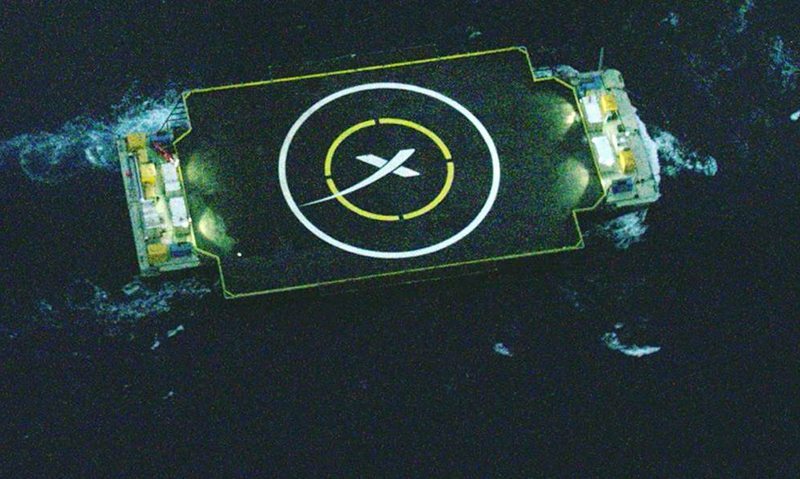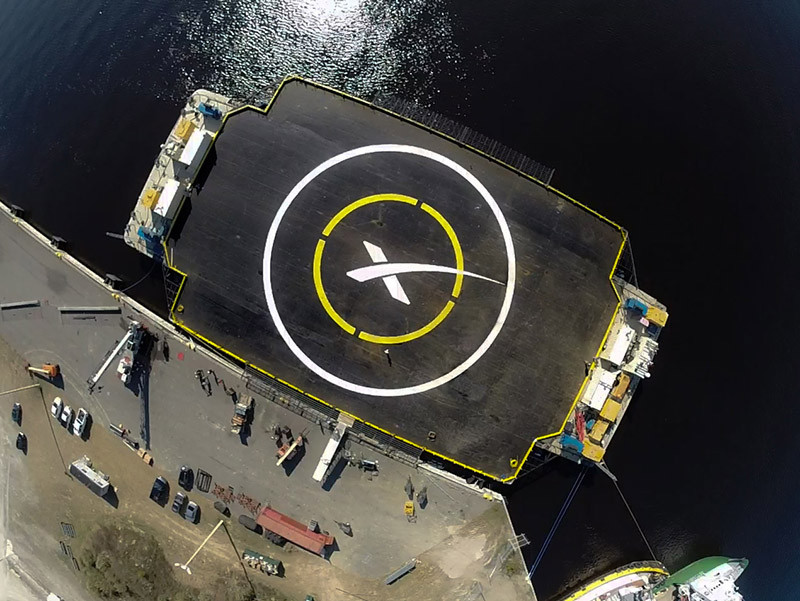
In an effort that has never been attempted before in the history of rocket science and space exploration, SpaceX will try to land a rocket on a floating platform early Tuesday morning.
According to senior writer Mike Wall of Space.com, the private spaceflight company, based in California, will attempt to land the first stage of its Falcon 9 rocket on a floating platform in the Atlantic Ocean. This is supposed to happen shortly after the booster launches SpaceX's robotic Dragon cargo capsule from Cape Canaveral, Fla.
"The odds of success are not great - perhaps 50 percent at best," SpaceX representatives wrote of the platform landing in a mission update last month posted on its official website. "However, this test represents the first in a series of similar tests that will ultimately deliver a fully reusable Falcon 9 first stage."
The SpaceX representatives admitted that although "returning anything from space is a challenge," returning a rocket for a "precision landing" has its own challenges.
"At 14 stories tall and traveling upwards of 1300 m/s (nearly 1 mi/s), stabilizing the Falcon 9 first stage for reentry is like trying to balance a rubber broomstick on your hand in the middle of a wind storm," SpaceX representatives wrote.
According to SpaceX, the engines will be relit for a series of three burns to "help stabilize the stage and to reduce its speed."
"The first burn-the boostback burn-adjusts the impact point of the vehicle and is followed by the supersonic retro propulsion burn that, along with the drag of the atmosphere, slows the vehicle's speed from 1300 m/s to about 250 m/s," SpaceX representatives wrote. "The final burn is the landing burn, during which the legs deploy and the vehicle's speed is further reduced to around 2 m/s."

"During previous attempts, we could only expect a landing accuracy of within 10km," SpaceX representatives wrote. "For this attempt, we're targeting a landing accuracy of within 10 meters."
If successful, SpaceX founder and billionaire Elon Musk indicated that such technology could cut down the costs of space flight by a factor of 100.
"If we can recover the stage intact and re-launch it, the potential is there for a truly revolutionary impact," Musk said back in April 2014 at the National Press Club.
Wall reported that the main goal of this launch is to send Dragon up to the International Space Station with more than 5,000 pounds (2,270 kg) of food, supplies and scientific experiments. Testing for the reusability of the rockets, according to Wall, is a secondary objective.
Geoff Brumfiel of NPR reported that previous tests by SpaceX related to this event have been somewhat successful.
"A flight in April saw the first stage successfully fire just before touching the ocean, but rough seas destroyed it shortly after it hit the water," Brumfiel wrote. "A second attempt in July also made a soft landing on the water, though the rocket stage was damaged after it toppled into the ocean."
The rocket's liftoff from Cape Canaveral Air Force Station is scheduled for 6:20 a.m. ET Tuesday; NASA officials indicated that the chances for good weather during that time are at 60 percent. Online viewers can catch the launch live beginning at 5 a.m. EST Tuesday at Space.com, courtesy of NASA TV.














